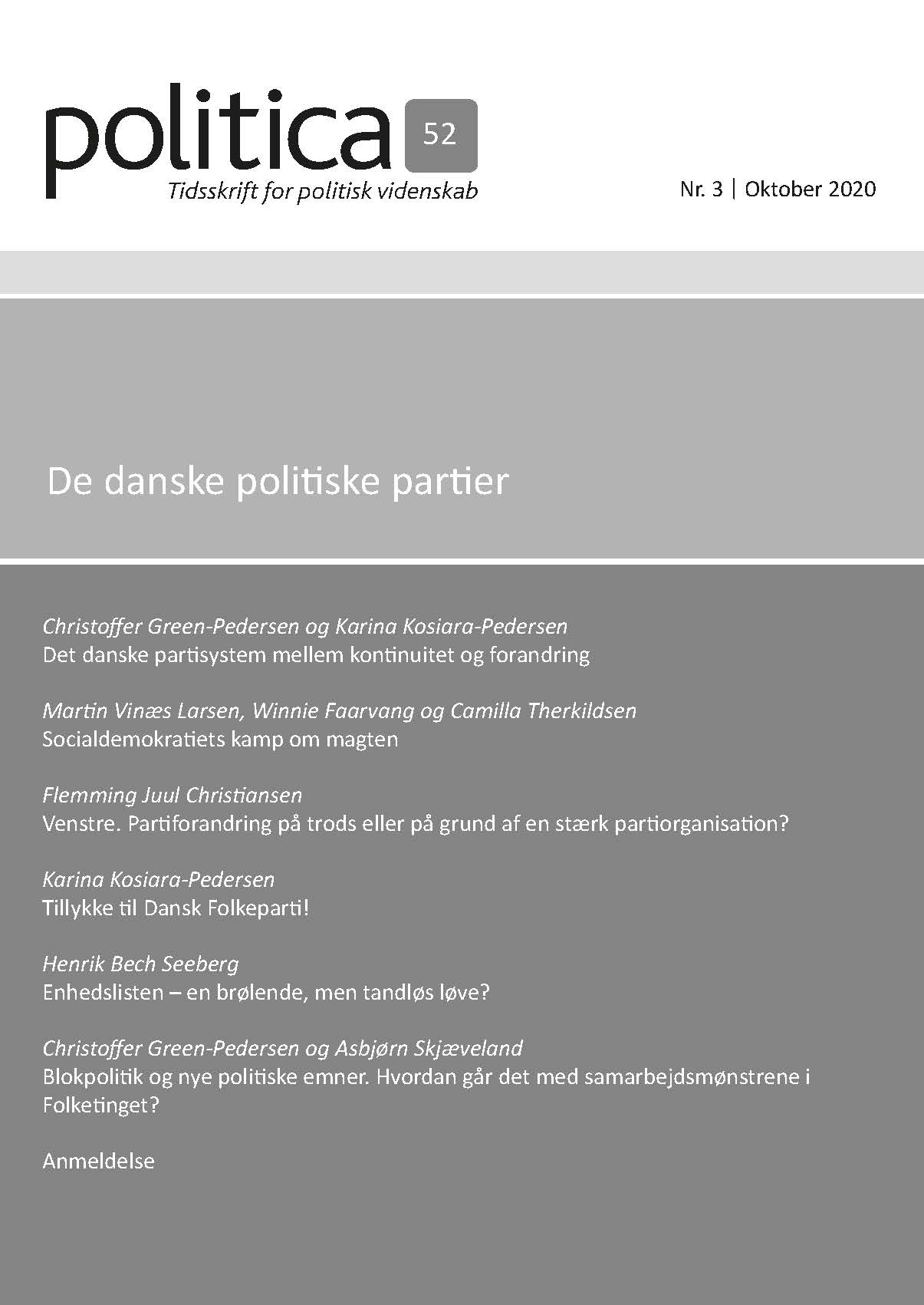Continuity and change: The Danish party system
DOI:
https://doi.org/10.7146/politica.v52i3.130816Keywords:
bloc politics, party positions, new politics, old politics, dimensionalityAbstract
The landslide election of 1973 could have been the beginning of the end for the Danish party system established with the introduction of parliamentary democracy. “Crisis” was written all over it. However, almost fifty years later, there is a continuity within the Danish party system that is possibly unexpected in light of the drastic changes in 1973. The core of the Danish party system remains the same. New parties have been established; some have been successful additions, some have waned. New issues have been added to the political agenda, but the competition for government power between a left-wing and a right-wing bloc remains the structuring principle of the Danish party system. Party organizations have lost traditional party membership but thrive as organizations on public financing and professionalization. Continuity and change characterize the Danish party system since the landslide election; also in the last 25 years, on which this article focuses.





